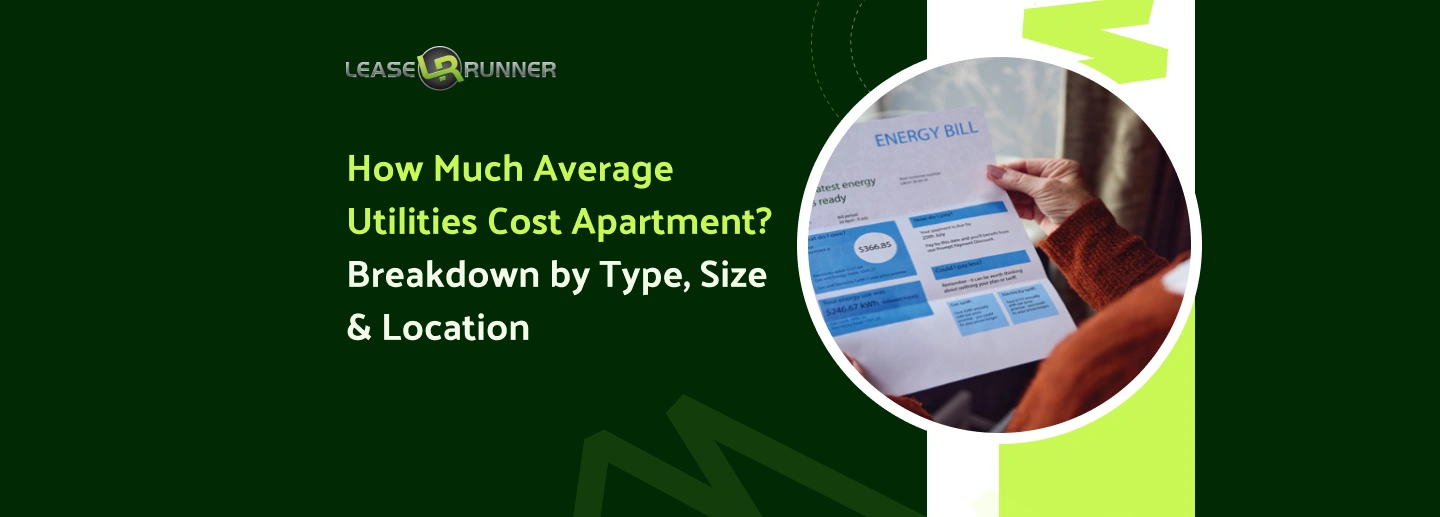Are you looking to understand "How much do property managers charge?" without getting lost in confusing numbers? Discover a clear, concise breakdown of fee models, from percentage-based arrangements to fixed monthly rates, that help you determine the true expense of expert management.
In our guide, we break down the common fee structures, explain what influences the cost, and highlight the extra charges you should watch out for. By the end, you’ll have a clearer picture of how much property managers really charge and how to choose a pricing model that fits your budget and investment goals.
Quick Facts Table About Property Management Fees
What Are Property Management Costs?
Property management costs are the fees landlords or real estate investors pay to a property management company for handling day-to-day operations of a rental property. These costs typically cover services such as tenant screening, rent collection, property maintenance, lease enforcement, and financial reporting.
The costs can be structured in different ways:
- Percentage of rent (commonly 8–12%) – charged as a share of the monthly rental income.
- Flat monthly rate – a fixed fee regardless of rent amount.
- Additional or hidden charges – such as leasing fees, maintenance markups, eviction costs, or inspection fees.
In short, property management costs represent the price you pay for convenience, expertise, and peace of mind in running your rental property.
Average Property Management Fees in 2025
Property managers typically charge 8% to 12% of the monthly rent as their management fee. In addition, landlords may pay extra fees such as a leasing fee (50–100% of one month’s rent for finding a new tenant) and repair markups (10–25% added to maintenance costs). The total cost varies depending on the property type, location, and level of service provided.
However, some professionals offer fixed pricing, directly addressing the query of how much a property manager costs with a flat rate. Each structure has pros and cons depending on your situation. For a deeper breakdown of typical expenses, check out property management costs explained.

Percentage of Monthly Rent (Typical Range)
The most common fee structure is a percentage of the monthly rental income.
- Typical range in 2025: 8%–12% of collected rent for residential properties.
- Luxury or high-demand areas: Some companies may charge as low as 6% if rental values are high.
- Smaller markets or high-maintenance properties: Fees can rise to 12%–15%.
For example, if your property rents for $2,000 per month, expect to pay between $160 and $240 in management fees. This usually covers tenant communication, rent collection, and basic maintenance coordination.
Flat Fee Model
Instead of charging a percentage, some property managers use a flat monthly rate.
- Average flat fee in 2025: Ranges from $100 to $300 per property, depending on location and services included.
- This model is popular for single-family homes or condos, where rental income may not justify a percentage-based fee.
- Advantage: Predictable monthly expenses.
- Drawback: May feel expensive for lower-rent properties if the fee doesn’t scale with rent.
Example: If your home rents for $1,200, paying a $200 flat fee equals nearly 17% of rent—higher than the typical percentage model.
Hybrid Models (Mix of Percentage + Fixed Fee)
A growing trend in 2025 is hybrid pricing. Property managers charge a smaller percentage of rent combined with a flat administrative fee.
- Example structure: 5% of rent + $50 monthly fee.
- Benefit: Balances affordability with stable income for the management company.
- Best suited for: Investors with multiple units or properties that require extra oversight, such as short-term rentals.
Hybrid models are becoming more common as property managers adapt to competitive markets and client demands for transparency.
State-by-State Averages (with Data or Examples)
Management fees can vary significantly depending on where your property is located:
Common Types of Property Management Fees
Understanding the different fees charged by property management companies is essential before signing a contract. While the structure varies, most managers include some combination of the following charges:
Setup or Onboarding Fees
Many companies charge a one-time setup or onboarding fee when you first sign a management contract.
- Typical range: $200–$500.
- Covers administrative tasks such as creating your account, setting up online portals, and conducting the first property inspection.
. For instance, a Houston-based property manager charges $250, which includes professional photos of your unit and uploading the listing to rental platforms. For new landlords, these fees can feel overwhelming, so it helps to start with the basics. This guide on how to become a landlord walks you through the essential steps before diving into property management costs.
Leasing/Tenant Placement Fees
Whenever a property manager finds a new tenant, you’ll likely pay a leasing or tenant placement fee.
Common structures:
- A flat fee of $300–$500.
- Or a percentage of one month’s rent (often 50–100%).
It usually includes marketing, showings, tenant screening, and preparing the lease agreement.
Ongoing Monthly Management Fees
The most consistent cost is the monthly management fee.
- Percentage model: 8–12% of monthly rent.
- Flat fee model: $100–$300 per property.
This covers daily operations like rent collection, tenant communication, and basic maintenance coordination.
Maintenance and Repair Fees (Markup Models)
Maintenance is where hidden costs often come in. While you’ll pay for the actual repair, many managers add a markup for coordinating vendors.
- Typical markup: 10–20% of the vendor’s invoice.
- Some companies have in-house maintenance teams and bill directly at an hourly rate.
Eviction and Legal Fees
If an eviction becomes necessary, additional charges apply.
- Average cost: $200–$500 for the manager’s time, plus court filing fees and attorney costs.
- This fee covers serving notices, representing you in court, and managing tenant turnover.
Lease Renewal Fees
When a tenant signs a new lease, many companies charge a renewal fee.
- Typical fee: $100–$300 flat rate or 25–50% of one month’s rent.
- Covers administrative work such as drafting renewal documents and adjusting rent if needed.
Vacancy Fees
Some management agreements include a fee for vacant properties.
- Flat fee model: $50–$100 monthly.
- Intended to cover inspections, lawn care, or marketing while the property is unoccupied.
- Not all companies charge this, but it’s important to check your contract.
Because vacancy fees can add up quickly, many landlords turn to incentives to minimize downtime. One common tactic is offering rent concessions to attract tenants—here’s what a rent concession is and how it works.
4 Factors That Affect Property Management Pricing
Answering how much property managers charge involves several variables. Here are the primary factors that impact their pricing:
Property type and size
Different kinds of properties call for varying methods of management. Managing an apartment complex versus a single-family house differs greatly. Larger, more luxurious homes typically have a higher residential property management fee.
This implies that, depending on complexity and size, the answer to the issue of how much property managers charge for every kind of property might be unique.
Location and Market Demand
The geographic area is also important. Property management fees often rise in metropolitan areas where competition is fierce and costs are high, as opposed to suburban, rural areas or landlord-friendly states. When considering the property management costs, understanding your market's characteristics is critical since the property management rate may alter correspondingly.
For example, in California, property management fees often range from 7% to 7.5%, while in Texas, they might be around 6.5% to 7%.
Level of service (Basic vs Full-Service)
The breadth of services offered likewise influences pricing. Often at a premium is full-service property management, which addresses everything from the vital tenant screening to maintenance.
Under these circumstances, the extent of support is reflected in the property managers' charges; thorough research on the costs of a property manager includes extra service-related expenses. On the other hand, restricted service might have fewer advantages but lower costs.
Experience and Reputation of the Management Company
A landlord with numerous rental properties could come across a different charge plan than a single-property owner. Reduced general percentage expenses resulting from bulk management might help to lower the average rental property management fees to a more affordable level. The usual expense for property management would weigh differently in bigger portfolios than in a single unit.
Percentage vs Flat Fee: Which One Is Better for You?
When comparing property management fees, two of the most common pricing structures are the percentage-based model and the flat fee model. Each has unique advantages and drawbacks, depending on the type of property you own and your investment strategy.
Pros and Cons of the Percentage Model
The percentage model is the most traditional and common fee structure. It typically involves the property manager charging a fee equal to 8–12% of the monthly rent collected.
Pros:
- Aligned Incentives: The manager's income is directly tied to your property's income. This motivates them to maximize rent and minimize vacancies. They have a financial incentive to market the property effectively, screen for quality tenants, and ensure the property is well-maintained to justify a higher rental price.
- Shared Risk: When the property is vacant or a tenant fails to pay rent, the manager earns less. This shared financial risk encourages them to work harder to keep the property occupied and rent flowing.
- Fairness for Lower-Rent Properties: If you own a lower-rent property, the percentage fee will be lower in absolute dollar terms, which can be more affordable.
Cons:
- Higher Costs for High-Rent Properties: In high-rent markets, a small percentage can quickly become a large dollar amount, potentially costing you more than a flat fee for the same amount of work. The manager's workload for a $2,000/month property is often similar to that of a $4,000/month property, but their fee is double.
- Unpredictable Costs: Your monthly management fee will fluctuate based on the rent collected, which can make budgeting less predictable.
- Potential Conflict of Interest: Managers might be incentivized to suggest more expensive repairs to increase their markup (if they charge one) or to prioritize finding a tenant at a higher rent rather than one who might be more reliable but willing to pay slightly less.
Pros and Cons of the Flat Fee Model
The flat fee model involves a fixed monthly charge, typically ranging from $100–$300 per property, regardless of the rent amount.
Pros:
- Predictable Costs: You know exactly how much you'll pay each month, which simplifies budgeting and financial planning. This is particularly appealing to landlords who value stability in their expenses.
- Cost-Effective for High-Rent Properties: If your property commands high rent, a flat fee can result in significant savings compared to a percentage model. For example, a $2,500/month property would cost you $250 in fees at a 10% rate but only $150 with a flat fee model.
- Focus on Tenant Retention: Since the manager's fee doesn't increase with rent, their incentive shifts from maximizing income to ensuring consistent occupancy. They may focus more on tenant satisfaction and retention to avoid the work of finding a new tenant, which benefits you through reduced turnover and vacancy.
Cons:
- No Financial Incentive to Maximize Rent: Because the fee is fixed, the property manager has no direct financial motivation to secure a higher rental rate or work harder to fill a vacancy quickly.
- Can Be More Expensive for Low-Rent Properties: A fixed fee can consume a larger percentage of the rent for a lower-priced property. For example, a $150 flat fee on an $800/month property is an effective rate of almost 19%.
- Potential for Limited Service: Some flat fee companies, particularly those on the lower end, might offer a more basic package of services. You may have to pay extra for things that are often included in a percentage-based fee, such as handling maintenance requests or eviction proceedings.
Here’s a clear side-by-side comparison table for Percentage vs Flat Fee property management models:
In short, the percentage model works best for landlords with lower-rent or multi-unit properties who want their manager’s incentives closely tied to property performance. On the other hand, the flat fee model is often the smarter choice for owners of high-rent or luxury rentals who prefer predictable costs and potential savings.

Hidden Fees in Property Management to Watch Out For as a Landlord
Even after understanding standard management fees, many landlords are surprised by hidden charges that quietly reduce their rental income. These fees can add up over time, and knowing what to look for helps you budget more accurately and avoid surprises.
Repair Markups
One of the most common hidden fees is the markup on repairs and maintenance. Property managers often coordinate these services on behalf of landlords, which saves time and ensures quality work, but it usually comes at a cost. Typically, managers add a 10–20% markup on the vendor’s invoice. For example, if a plumbing repair costs $400, a 15% markup brings your total to $460.
While a single repair may not seem significant, multiple repairs throughout the year, from routine maintenance to emergency fixes, can quickly reduce your overall profits. Some managers even apply markups to larger renovation projects, which can make the difference between a modest and a substantial annual expense.
Early Termination Fees
Property management contracts often include clauses that penalize landlords who end the agreement early. These early termination fees typically range from $200 to $500, or sometimes a percentage of one month’s rent. For instance, ending a contract for a $2,000/month rental could cost around $300.
While these fees compensate the manager for lost business, they can discourage landlords from switching companies even if the services provided are not meeting expectations. Understanding this clause is crucial before committing to a long-term contract, particularly if you anticipate the need for flexibility.
Late Payment Penalties
Late payment penalties are another area where landlords can incur unexpected costs. Some property managers charge fees if tenants pay rent late, and occasionally landlords themselves may face penalties for delayed owner payments. Typically, late fees range from $25 to $50 per incident, or sometimes a small percentage of the overdue rent.
For example, if a tenant pays $1,500 late twice in a year and the late fee is $30 per occurrence, that totals $60 deducted from your income. While this may seem minor, recurring late payments across multiple properties can erode profitability over time.
Admin or Miscellaneous Charges
Finally, administrative or miscellaneous charges often appear in property management contracts, usually for services outside the standard scope of management. These may include document preparation, bank transfer processing, marketing updates, or lease amendment handling. For example, a manager might charge $50 each time a lease is amended or $25 for monthly ACH transfers of rent proceeds.
While each individual fee seems small, they can accumulate over the course of a year, especially for landlords managing multiple units. These costs are easy to overlook but can make a noticeable difference in your net income if not accounted for.
How to Calculate the True Cost of Property Management?
When evaluating management costs, it’s not enough to focus only on the fees you pay. What really matters is how those expenses affect the income you keep at the end of the month. That’s why understanding your rental property cash flow is so important—it reveals whether hiring a manager will strengthen or weaken your overall returns.
Looking beyond the headline rate, landlords should also factor in hidden charges, maintenance markups, and vacancy periods, all of which directly shape profitability. Breaking costs down through practical examples gives a clearer picture of what you can truly expect.
Example Calculation (Percentage Model)
Formula:
Let’s assume you own a rental property that generates $2,000 per month in rent. You hire a property management company that charges a 10% monthly management fee. On paper, that’s $200 per month or $2,400 per year.
However, you also need to account for other potential costs:
- Leasing/Tenant Placement Fee: 75% of one month’s rent = $1,500
- Repair Markups: Average $200 per year with 15% markup = $230
- Lease Renewal Fee: $200
Adding these costs, the true first-year cost of property management is approximately $4,330. In subsequent years (assuming no new tenants), ongoing costs would mainly consist of the 10% monthly fee plus occasional maintenance and renewal fees, totaling around $2,630 annually.
This example shows that while percentage-based fees align manager incentives with rental income, extra fees and markups can significantly impact the overall cost.
Example Calculation (Flat Fee Model)
Formula:
Now, imagine the same property generates $2,000/month, but you pay a flat fee of $250 per month instead of a percentage. Your base monthly management cost is $250, or $3,000 per year.
Additional charges may include:
- Leasing/Tenant Placement Fee: $400 flat fee per new tenant
- Repair Markups: $200 per year
- Lease Renewal Fee: $200
The first-year cost for the flat fee model comes to approximately $3,800. In subsequent years, with no new tenants, annual costs would mainly include the $250 monthly flat fee plus maintenance and renewal fees, totaling around $3,450.
Compared to the percentage model, the flat fee can offer predictable expenses and may be more cost-effective if your property commands higher rent. Conversely, for lower-rent properties, flat fees may represent a higher percentage of income than the percentage model.
ROI Considerations for Landlords
Calculating the true cost of property management is just one piece of the puzzle. Landlords also need to consider ROI (Return on Investment), which includes net rental income after management fees, vacancies, maintenance, and other expenses.
Formula:
For example, a property generating $24,000 annually in rent with $4,330 management costs (percentage model) leaves $19,670 before taxes and mortgage. In contrast, a flat fee structure may leave slightly more or less depending on rent level and frequency of tenant turnover.
Other factors influencing ROI include:
- Vacancy rates: Higher vacancies increase the effective cost of management.
- Maintenance frequency: Older properties or high-turnover rentals tend to incur more repair markups.
- Lease length: Longer-term tenants reduce leasing fees and administrative costs.
Ultimately, comparing net income after all management fees rather than just the headline percentage or flat fee gives a clearer picture of profitability. For landlords comparing how much do property managers charge, ROI shows the bigger picture: sometimes lower fees don’t mean higher profitability if turnover and hidden charges are frequent.
To explore practical ways of lowering your tax liability, check out this guide on reducing rental income taxes, which can help you maximize savings and gain a more accurate view of your bottom line.
How to Choose the Right Property Manager for Your Budget
Choosing the right partner starts with asking detailed questions that answer, “How much do property managers charge?” Consider the following recommendations:
- Assess Your Needs: Determine whether you require comprehensive services or a more limited engagement. The type of services you need will shape the final property management fees and affect both the property management rate and the residential property management fee you ultimately pay.
- Obtain Multiple Quotes: Request proposals from several property management firms to compare their approaches. This comparative analysis will give you a clearer picture of property managers' charges and allow you to evaluate property manager costs on a per-service basis.
- Research Reviews and Track Record: A company’s reputation is as important as its pricing. Online reviews and client testimonials reveal how transparent a firm is about property management costs and whether hidden costs are a recurring issue.
- Examine Contract Details: Read the fine print carefully. A detailed contract should clearly articulate all fees, including any add-ons beyond the advertised estate management fee. Transparency here is the key to knowing exactly “How much do property managers charge?” without unexpected extras.
- Decide to self-manage: If you feel that a property management company won’t bring the value you are looking for, using LeaseRunner.com along with its resources is the best alternative to eliminate stress and the time typically spent.
Summary
Understanding "How much do property managers charge?" is critical for any landlord. Whether percentage-based, flat fees, hybrid structures, or otherwise, the research here presents an organized approach to analyzing several fee patterns and clarifies the elements influencing the cost of property management.
One effective way to reduce long-term expenses is by ensuring you select reliable tenants through tenant background screening. This process helps minimize turnover, prevent disputes, and lower legal risks. With these tools and insights in hand, you can confidently save money while efficiently controlling your properties.
FAQs
Q1. What is the typical percentage that answers how much property managers charge?
Most property managers charge between 8% and 12% of the monthly rent, which effectively explains how much property managers charge using a percentage model.
Q2. Are there extra hidden fees beyond the advertised cost?
Yes. Additional fees, such as leasing fees, renewal fees, and extra charges for repair, can affect the final property management fees. Always review the full breakdown to know exactly how much the property management service includes.
Q3. Does location affect the property management rate?
Absolutely. Properties in urban areas, where competition and costs are higher, typically face increased property management fees compared to more rural settings.







